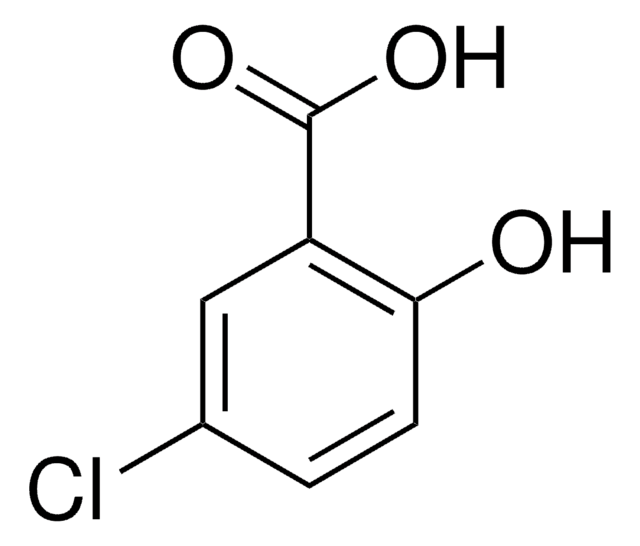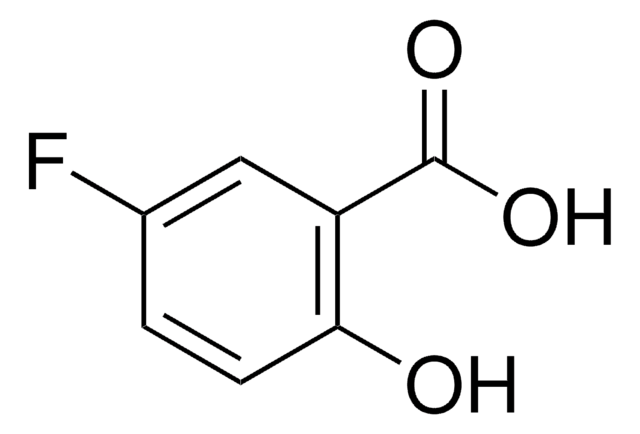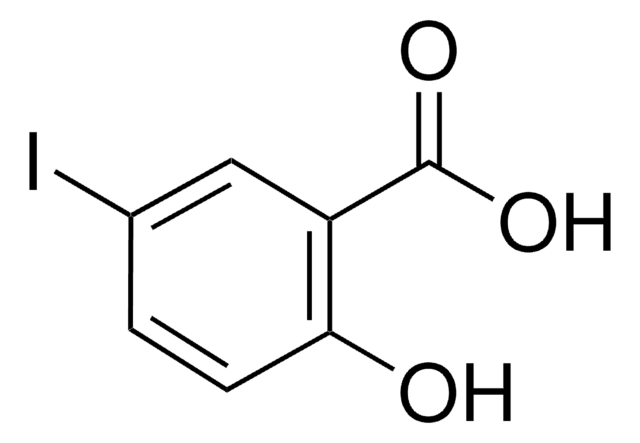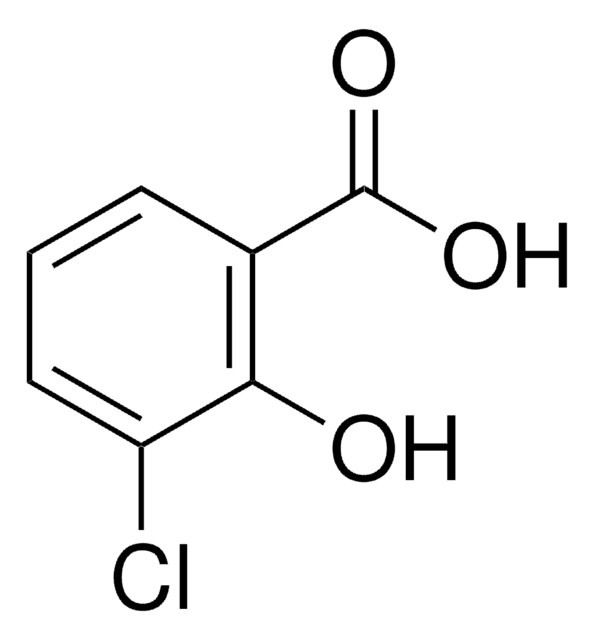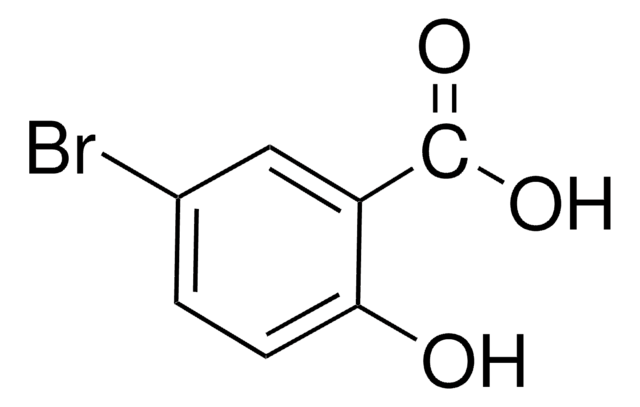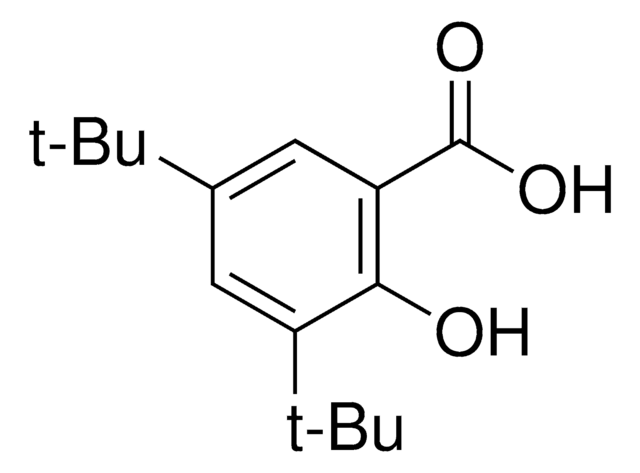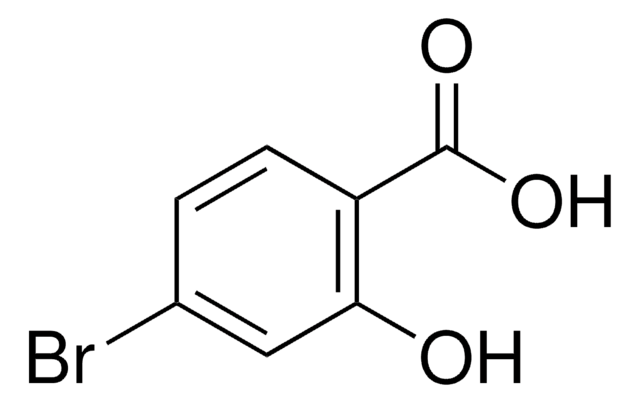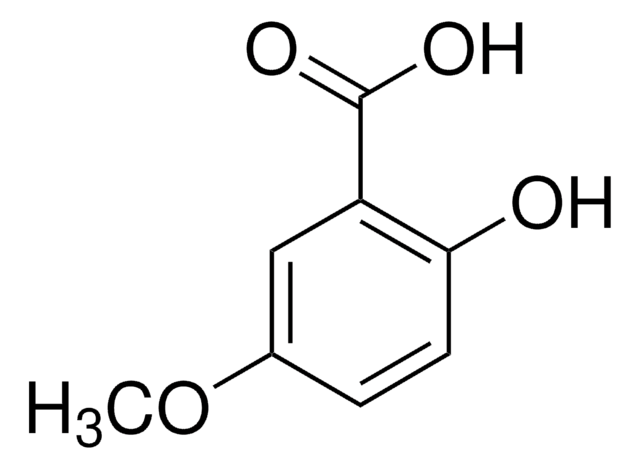254681
3,5-Dichlorosalicylic acid
97%
Synonym(s):
3,5-Dichloro-2-hydroxybenzoic acid
Sign Into View Organizational & Contract Pricing
All Photos(1)
About This Item
Linear Formula:
Cl2C6H2(OH)CO2H
CAS Number:
Molecular Weight:
207.01
EC Number:
MDL number:
UNSPSC Code:
12352100
PubChem Substance ID:
NACRES:
NA.22
Recommended Products
Quality Level
Assay
97%
mp
220-222 °C (lit.)
functional group
carboxylic acid
chloro
SMILES string
OC(=O)c1cc(Cl)cc(Cl)c1O
InChI
1S/C7H4Cl2O3/c8-3-1-4(7(11)12)6(10)5(9)2-3/h1-2,10H,(H,11,12)
InChI key
CNJGWCQEGROXEE-UHFFFAOYSA-N
Related Categories
General description
3,5-Dichlorosalicylic acid is a bio-active drug and its interaction with a model transport protein bovine serum albumin has been investigated. It is a potential inhibitor of human 20α-hydroxysteroid dehydrogenase.
Signal Word
Warning
Hazard Statements
Precautionary Statements
Hazard Classifications
Acute Tox. 4 Oral - Eye Irrit. 2 - Skin Irrit. 2 - STOT SE 3
Target Organs
Respiratory system
Storage Class Code
11 - Combustible Solids
WGK
WGK 3
Flash Point(F)
Not applicable
Flash Point(C)
Not applicable
Personal Protective Equipment
dust mask type N95 (US), Eyeshields, Gloves
Choose from one of the most recent versions:
Already Own This Product?
Find documentation for the products that you have recently purchased in the Document Library.
Vincenzo Carbone et al.
Archives of biochemistry and biophysics, 479(1), 82-87 (2008-09-11)
The structure of aldehyde reductase (ALR1) in ternary complex with the coenzyme NADPH and 3,5-dichlorosalicylic acid (DCL), a potent inhibitor of human 20alpha-hydroxysteroid dehydrogenase (AKR1C1), was determined at a resolution of 2.41A. The inhibitor formed a network of hydrogen bonds
Bijan Kumar Paul et al.
Physical chemistry chemical physics : PCCP, 14(25), 8892-8902 (2012-02-07)
The present work demonstrates a detailed characterization of the interaction of a bio-active drug molecule 3,5-dichlorosalicyclic acid (3,5DCSA) with a model transport protein Bovine Serum Albumin (BSA). The drug molecule is a potential candidate exhibiting Excited-State Intramolecular Proton Transfer (ESIPT)
Armelle Tchoumi Neree et al.
Scientific reports, 10(1), 21563-21563 (2020-12-11)
Excess of histamine in gut lumen generates a pronounced gastrointestinal discomfort, which may include diarrhea and peristalsis dysfunctions. Deleterious effects of histamine can be alleviated with antihistamine drugs targeting histamine receptors. However, many antihistamine agents come with various undesirable side
Zhenxuan Zhang et al.
Water research, 170, 115283-115283 (2019-11-19)
Halogenated aromatic disinfection byproducts (DBPs) are a new group of emerging DBPs identified recently. They have been detected in disinfected drinking water, wastewater effluents, recreational water and oil/gas produced water, at concentrations of ng/L to μg/L in general. Previously studies
Shaoyang Hu et al.
Chemosphere, 228, 668-675 (2019-05-10)
As the first identified category of disinfection byproducts (DBPs), trihalomethanes (THMs) have received continuous attention. Previous studies have demonstrated that the transformation of aromatic halogenated DBPs during chlor (am)ination resulted in the formation of THMs, which may occur in both
Our team of scientists has experience in all areas of research including Life Science, Material Science, Chemical Synthesis, Chromatography, Analytical and many others.
Contact Technical Service
